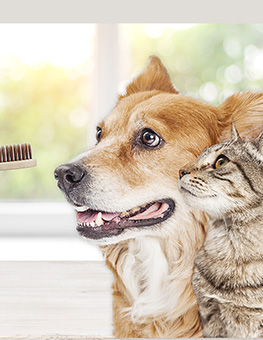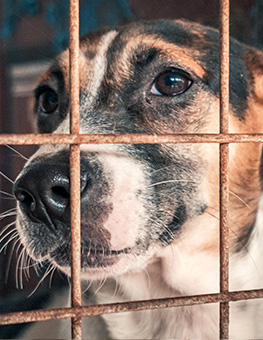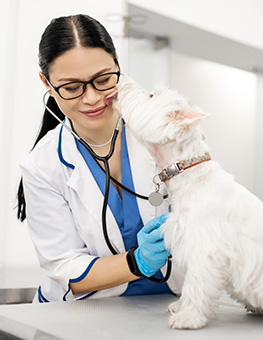Mosquito Bites and Your Dog
More than just irritating pests, mosquitoes are a primary cause of heartworm in dogs.
Along with the arrival of warm and humid summer days comes an ever-present annoyance - mosquitoes. Although your dog’s fur or hair offers some protection against mosquito bites, he is still vulnerable in places where his skin is exposed, for example, his ears and nose. As with humans, a bite from a mosquito can result in everything from an annoying itch to more serious parasitic diseases. In dogs, heartworm disease is the primary concern.
Heartworm disease. Heartworm disease is a serious parasitic condition caused by a worm, Dirofilaria immitis, which lives in the blood vessels and heart of infected pets. The disease is spread by mosquitoes. When an infected dog is bitten by a mosquito, the blood that is withdrawn can contain heartworm offspring. When the mosquito bites a second dog, the offspring are passed through. Inside the host, the heartworm can grow into a parasite up to a foot in length. The parasite can cause injury to the lungs, arteries and the heart. Symptoms include:
- Lethargy
- Coughing
- Vomiting
- Difficulty breathing
- Fainting
- Exercise intolerance
These symptoms are also associated with other canine diseases so diagnosis can be difficult. Often, a blood test is required to confirm the diagnosis. Treatments are available but prevention and mosquito control are most important.
Other diseases. Top of mind these days when people think of mosquitoes, they think of West Nile Virus (WNV). Other diseases carried by mosquitoes include Eastern Equine Encephalitis (EEE) and Systemic Lupus Erythematosus (SLE). All three of these diseases, however, are extremely rare in dogs and it unlikely you will need to concern yourself with their identification and treatment.
Mosquito control. The likelihood of heartworm infection can be minimized by keeping your pet indoors and controlling the mosquito population in your local environment. The following preventative measures will help to minimize bites and the associated risks for both you and your pets:
- Remove sources of stagnant water around the house and garden. Mosquitoes breed and thrive in standing water.
- Change water bowls frequently.
- Avoid walking your dog in marshy places.
- Fit windows and doors of your home with screens to prevent mosquitoes from entering.
- Use insect repellants with caution. Products with DEET are not recommended for cats and dogs and many repellants with essential oils have not been tested for effectiveness or safety.
- Put your dog on a heartworm prevention program to protect him. Heartworm disease can be fatal to dogs (and cats) if left untreated.
- Keep your pets inside, especially in the early morning and early evening, when mosquitoes are most active. The less exposure your animals have to mosquitoes, the less likely they are to be bitten.
Bite treatment. Treat bites on the ears and nose with an antibacterial cream to keep them from becoming infected. See your veterinarian if the bites do not heal or appear to be getting worse.
Heartworm treatment. An important part of any heartworm prevention program is testing. Your vet will perform a blood test to rule out heartworm disease before starting him on a preventative. Treatment should always be under the direction of your veterinarian.
Both you and your dog will benefit from controlling the mosquito population around your home. For your dog, additional precaution in the form of a heartworm preventive is recommended.

















